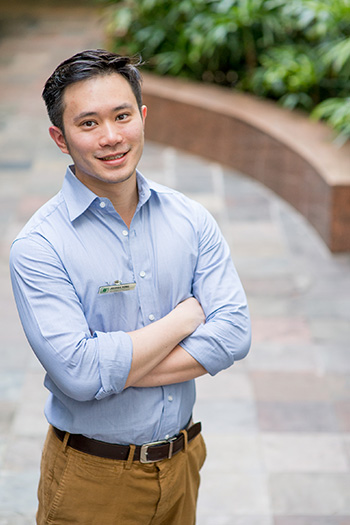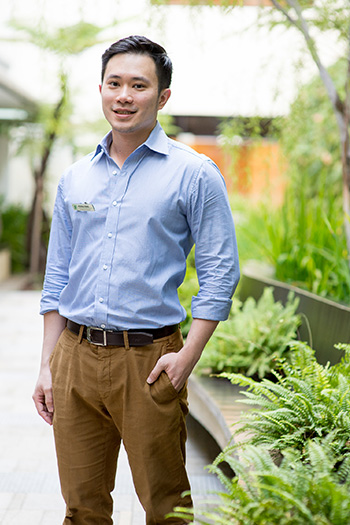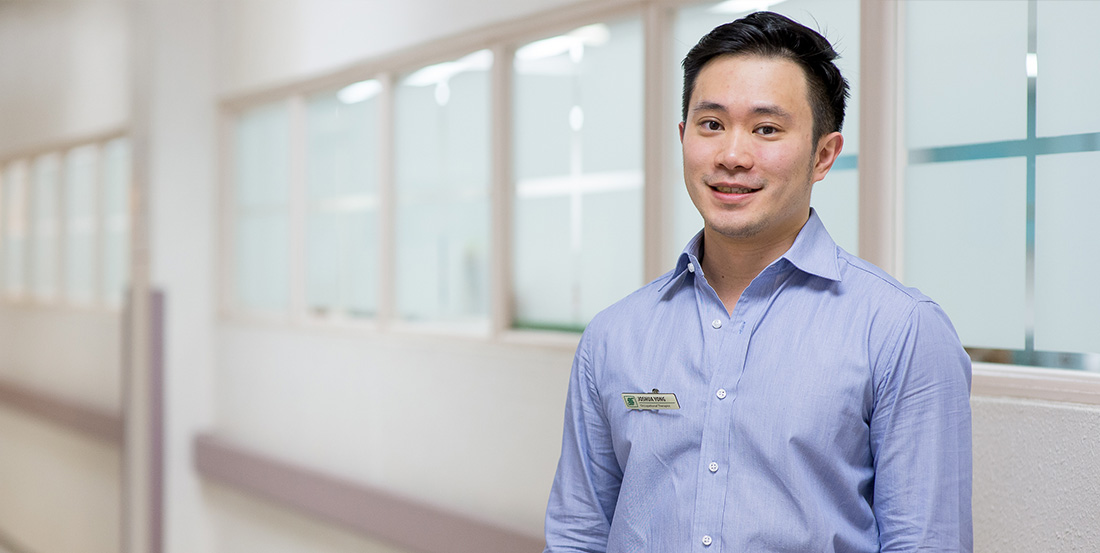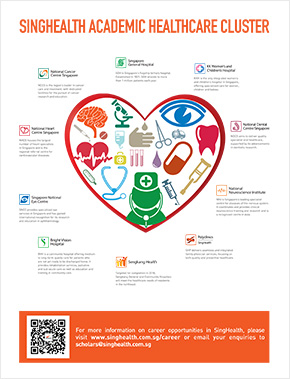M any daily tasks such as cutting your own food and buttoning your shirt require fine motor coordination and skills to perform. For those with physical disabilities or other conditions, even a simple task can be an uphill battle. Occupational Therapists develop and maintain their patients’ capacity to perform day-to-day tasks and roles which are essential to productive living, leisure and work.
They work with people with a range of conditions, including those who have physical disabilities or mental or social problems stemming either from birth or as a result of accident, illness or ageing. As a highly patient-centric profession, Occupational Therapists take into account each patient’s unique lifestyle, preferences and needs to tailor the best treatment programme for them.

Joshua Yong walks us through the in’s and out’s of his profession as an Occupational Therapist and the unique opportunities he has enjoyed as a Healthcare Scholar.
What led you to apply for the Healthcare Scholarship? What attracted you to it?
Joshua Yong: I wanted to help people get back on their feet. It was clear to me that my calling was in healthcare, and the Healthcare Scholarship seemed a natural choice. The scholarship gave me the financial means to pursue an overseas education and opportunities to learn from some of the best mentors in the healthcare sector. Furthermore, it has given me the chance to work in Singapore General Hospital (SGH) – one of the leading hospitals in Singapore.
What sparked your interest in healthcare and the field of Occupational Therapy?
Joshua: I actually spent a good portion of my National Service days preparing myself to enter the corporate world, something that most of my friends were set on doing as well. However, while doing a routine administration audit for my unit one day, I realised that I just could not picture myself performing a deskbound job all day.
I later reflected on a particular visit to a home for the aged that was part of my school’s Community Involvement Programme. As I recalled how the therapist had engaged some of the elderly residents in exercise programmes and a range of other activities, I realised that I wanted to empower people to be able to return to doing the things that they enjoy and are meaningful to them. That was the moment that I discovered with certainty that I wanted to become an Occupational Therapist.
Tell us more about the roles of an Occupational Therapist. What are some of your responsibilities?
Joshua: I am currently working with patients who have sustained hand and upper limb injuries. I assess their strength, range of motion, sensation and ability to perform various daily tasks. I also teach them how to manage their conditions as they go about their daily routine and instruct them on specific exercise regimes to improve the function of their injured hand in a safe manner. In addition, I fabricate customised splints which are used to protect the injured hand or improve the patient’s functional capacity.
On top of my clinical work, I am also involved in research projects aimed at improving patient care and helping them to return to their daily activities or work.

Joshua Yong
Healthcare Scholar
Designation: Occupational Therapist,
Singapore General Hospital
Studied: Bachelor of Applied Science and
Occupational Therapy Practice, La Trobe University, Australia
Tell us more about the role of Occupational Therapist in the larger field of healthcare.
Joshua: Even after the medical team has treated and stabilised a patient’s condition, some individuals are left with various limitations and impairments that stop them from going back to school or work. These disabilities prevent them from doing the things that they want to do and are used to doing. For example, a housewife may find herself unable to do household chores or care for her children after a stroke.
Occupational Therapists work with the individual patient to identify areas where they have difficulty performing in and help them restore their capacity to carry out these functions. We formulate individualised rehabilitation programmes to improve various aspects of our patients’ welfare such as strength and memory. We also suggest new ways of doing things and work to adjust the activity or environment in question so that patients with more lasting or serious impairments can continue to carry out the activities that they find meaningful.
What opportunities have you enjoyed as a Healthcare Scholar?
Joshua: I was given the opportunity to go on internships in countries such as Japan and Australia to learn from many gifted clinicians, observe their culture and derive valuable insights from their healthcare systems.
More importantly, the training has equipped me with the necessary skills and knowledge to do my job well and allowed me to appreciate the macro aspect of patient rehabilitation in a healthcare system. At SGH, I have also been given opportunities to learn more about other clinical specialties and to pursue my interest in health science research. I hope to be able to contribute to the field of rehabilitation by devoting myself to research to improve current practices.
What advice do you have for aspiring Healthcare Scholars?
Joshua: The most fulfilling part of the job is being able to see your patients get better and return to work or their daily activities. Each individual presents a different set of challenges and you have to think on your feet and come up with feasible solutions to address their problems.
Each day is truly a learning journey and we have much to learn from our interactions with patients. It’s important to keep an open and inquisitive mind. Be patient with them, and always remember that it is our job to help them when they are at their lowest point in life.

